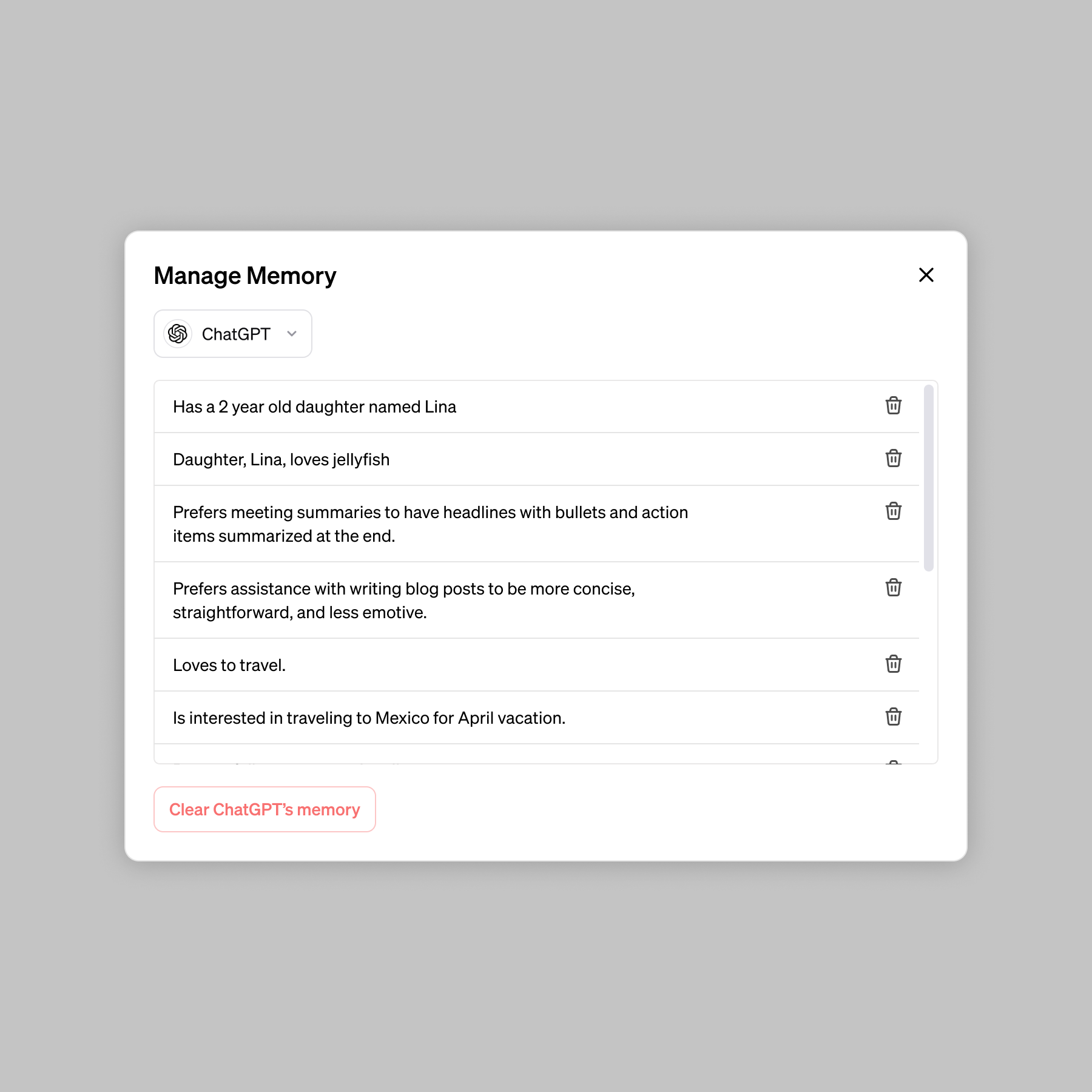Last Updated on February 14, 2024 11:14 am by Laszlo Szabo / NowadAIs | Published on February 14, 2024 by Juhasz “the Mage” Gabor
Men’s Nightmare: ChatGPT Memory Remembers Everything – Key Notes
- OpenAI has enhanced ChatGPT with a Memory feature, storing user information to personalize conversations.
- Memory applies to both free and paid versions, storing details like work habits and preferences.
- Users must manually disable the Memory feature; it can be cleared anytime.
- Sensitive data, like passwords or Social Security numbers, is designed to be forgotten.
- Concerns arise over privacy and handling of sensitive health information.
- Other entities, like Google and LangChain, explore similar memory features in AI.
ChatGPT Boosted with Memory by OpenAI

The internet has always been a source of both opportunity and danger, with its ability to store information and experiences beyond our own memory.
In recent times, technology companies have offered virtual assistants and chatbots as a solution to handle the burden of remembering and reminding.
This represents a shift towards viewing the internet as a means of communication rather than just a storage space.
The Impact of Memory on User Experience
We’re testing ChatGPT's ability to remember things you discuss to make future chats more helpful.
This feature is being rolled out to a small portion of Free and Plus users, and it's easy to turn on or off. https://t.co/1Tv355oa7V pic.twitter.com/BsFinBSTbs
— OpenAI (@OpenAI) February 13, 2024
According to OpenAI, ChatGPT’s Memory feature is enabled by default, requiring users to manually disable it. The Memory can be erased at any time, either through the settings or by directly instructing the bot. Clearing the Memory setting ensures that the data is not used to train the AI model.
It is not specified how much of this personal information is used to train the AI while interacting with the chatbot. Additionally, turning off the Memory does not guarantee complete opt-out from having your conversations contribute to OpenAI’s model; this requires a separate opt-out process.
According to the company, it will not retain particular sensitive data in its Memory. This includes instances where users disclose their password (which is strongly advised against) or Social Security number (which is also not recommended). The company’s Memory is designed to forget this information. Additionally OpenAI is currently seeking input on whether other personally identifiable details, such as a user’s ethnicity – but all should be excluded from automatic capture due to sensitivity concerns.
The Memory feature of ChatGPT can potentially have negative consequences, such as when a user forgets that they previously asked the chatbot about a personal topic, only to have it brought up again in a future conversation.
The concern also extends to how ChatGPT handles sensitive health information. OpenAI representative Niko Felix explains that they are working on avoiding storing certain health details.
This highlights the issue of the internet’s permanence, as ChatGPT’s Memory feature is promoted as a positive addition until it becomes a flaw.
User Control and Privacy Concerns
OpenAI’s latest release aims to provide long-term memory through ChatGPT. This feature, known as Memory, stores information about the user’s identity, work habits, and preferred topics for conversation. It enhances the “custom instructions” tool released by OpenAI in July, allowing the chatbot to remember details such as being a tech-enthusiast.
ChatGPT now has the capability to retain information from previous conversations, whether it be through custom commands or direct instructions. This feature applies to both the free (ChatGPT 3.5) and paid (ChatGPT 4) versions, and includes personal details of the user. These details are automatically stored as the conversation progresses.
Comparing ChatGPT’s Memory with Other AI Technologies
The concept of incorporating memory into generative AI has been explored by various entities, not just OpenAI. One example is Google’s Gemini 1.0, which focuses on “multi-turn” technology.
This allows users to either engage in a single-turn interaction with the Gemini Pro chatbot or have a continuous conversation that remembers previous messages.
LangChain, a company specializing in AI frameworks, has been working on a Memory module aimed at assisting large language models in recollecting past interactions between the model and an end user.
The absence of long-term memory can also lead to a frustrating experience, as nobody wants to repeatedly inform a restaurant-recommendation chatbot about their dietary preferences.
Memory – the Concept turned Real
The concept of “context retention” or “persistent context” is often used instead of “memory” in reference to this technology, however, the ultimate objective remains unchanged: to create a seamless and natural human-computer interaction that allows the user to easily overlook the chatbot’s ability to remember.
This also presents a promising opportunity for businesses utilizing these chatbots, as they can maintain a continuous relationship with their customers.
Is this the long-awaited virtual assistant with heightened awareness that was promised to tech consumers for the last ten years, or is it simply another method of collecting data that utilizes your preferences, likes, and personal information to benefit the tech company more than its users?
It could be a combination of both, although OpenAI may not phrase it in that manner.
Frequently Asked Questions
- What is the ChatGPT Memory feature?
- It’s a new enhancement allowing ChatGPT to store and recall user information for personalized interactions.
- Can I disable ChatGPT’s Memory?
- Yes, users can manually disable the Memory feature or erase it at any time through settings.
- Does ChatGPT’s Memory store sensitive data?
- ChatGPT is designed to forget sensitive data, like passwords or Social Security numbers, automatically.
- How does ChatGPT’s Memory compare to human memory?
- ChatGPT’s Memory is limited to a few thousand tokens, far less than the human brain’s capacity.
- Are there any privacy concerns with ChatGPT’s Memory?
- Yes, there are concerns regarding privacy and how sensitive information, especially health details, is handled.









